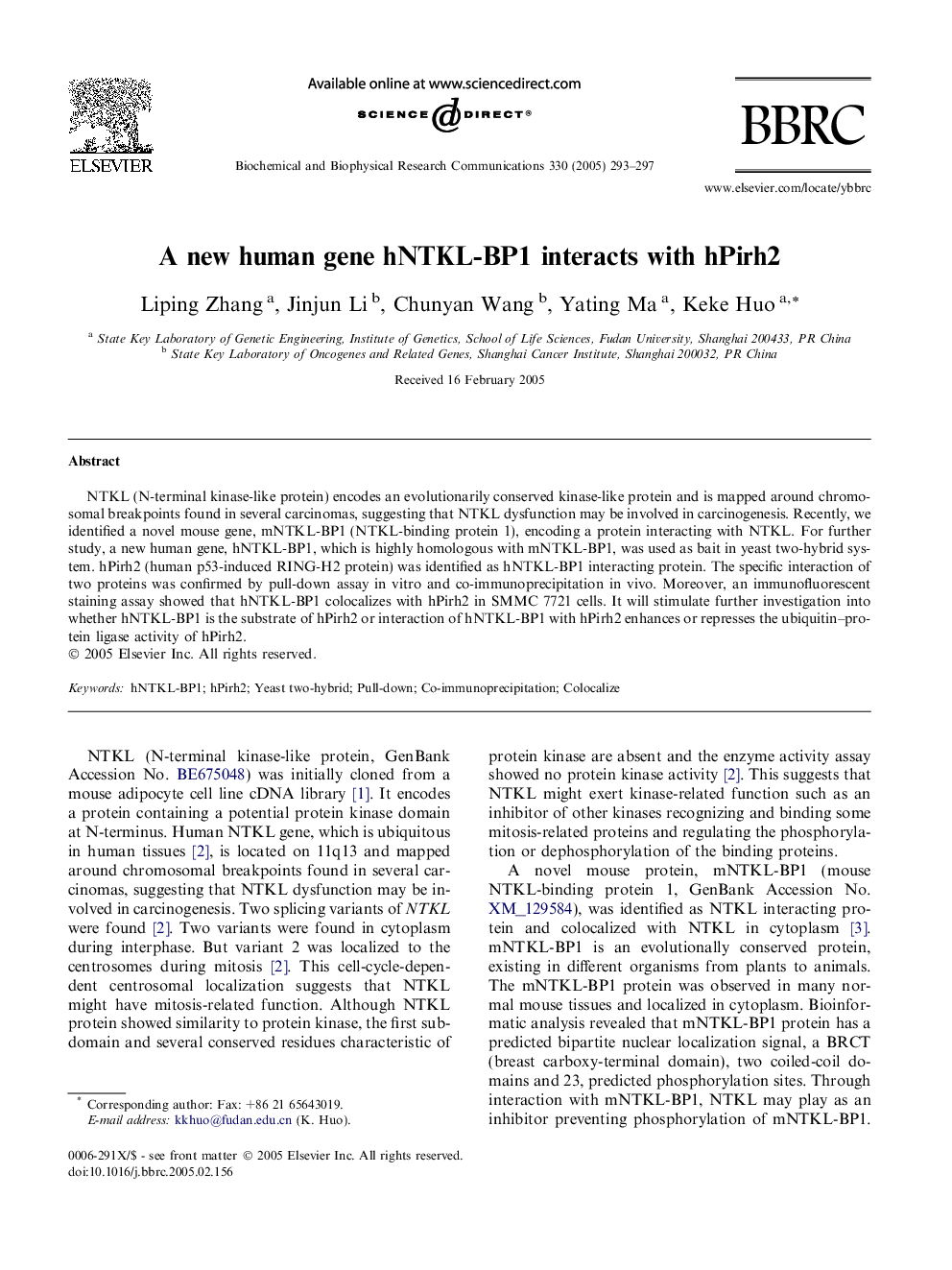| Article ID | Journal | Published Year | Pages | File Type |
|---|---|---|---|---|
| 10770896 | Biochemical and Biophysical Research Communications | 2005 | 5 Pages |
Abstract
NTKL (N-terminal kinase-like protein) encodes an evolutionarily conserved kinase-like protein and is mapped around chromosomal breakpoints found in several carcinomas, suggesting that NTKL dysfunction may be involved in carcinogenesis. Recently, we identified a novel mouse gene, mNTKL-BP1 (NTKL-binding protein 1), encoding a protein interacting with NTKL. For further study, a new human gene, hNTKL-BP1, which is highly homologous with mNTKL-BP1, was used as bait in yeast two-hybrid system. hPirh2 (human p53-induced RING-H2 protein) was identified as hNTKL-BP1 interacting protein. The specific interaction of two proteins was confirmed by pull-down assay in vitro and co-immunoprecipitation in vivo. Moreover, an immunofluorescent staining assay showed that hNTKL-BP1 colocalizes with hPirh2 in SMMC 7721 cells. It will stimulate further investigation into whether hNTKL-BP1 is the substrate of hPirh2 or interaction of hNTKL-BP1 with hPirh2 enhances or represses the ubiquitin-protein ligase activity of hPirh2.
Related Topics
Life Sciences
Biochemistry, Genetics and Molecular Biology
Biochemistry
Authors
Liping Zhang, Jinjun Li, Chunyan Wang, Yating Ma, Keke Huo,
